AI in Commercial Real Estate
February 19, 2026
AI in Commercial Real Estate
February 19, 2026
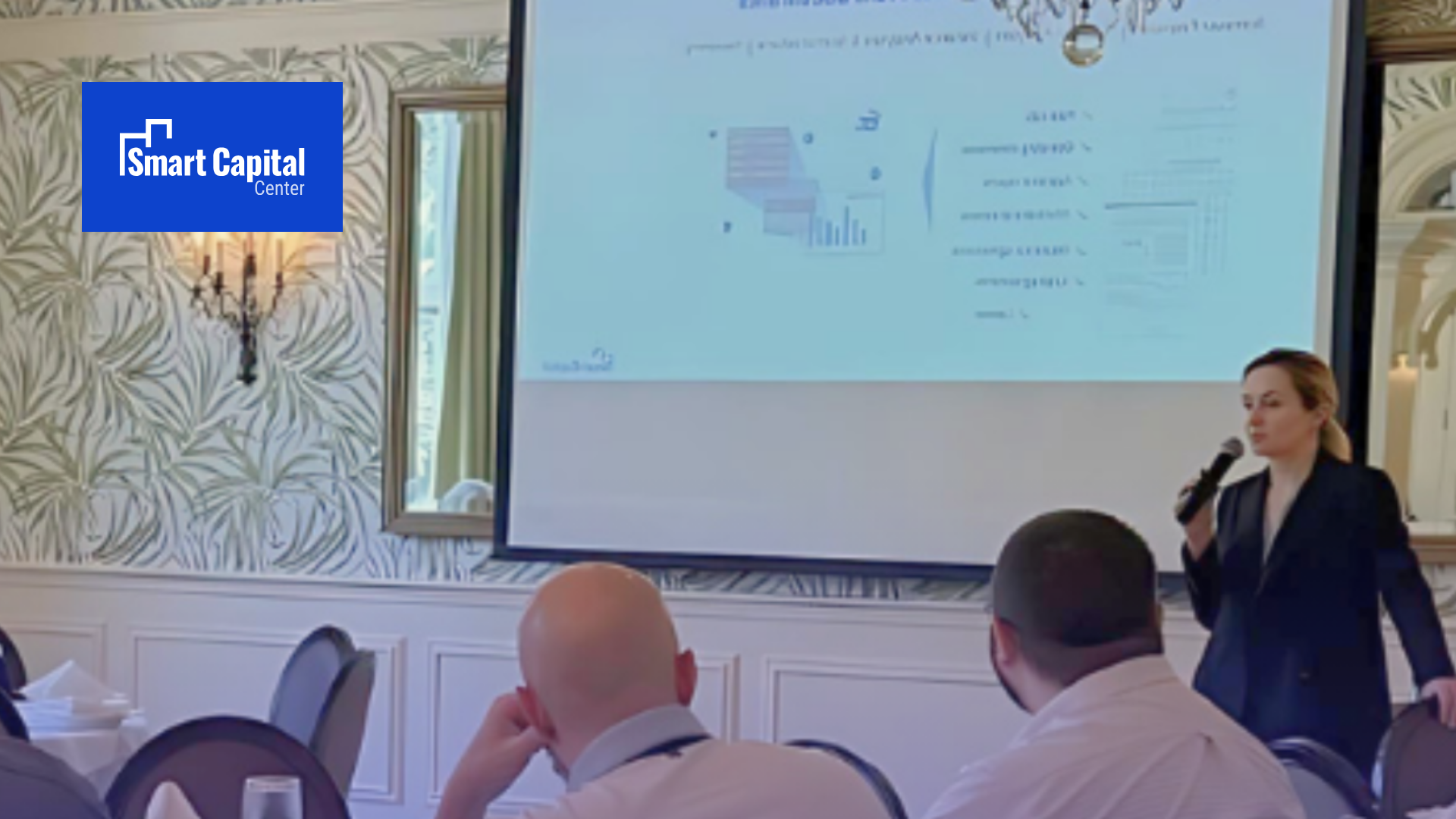
Artificial intelligence (AI) is not just a future idea; it is a current reality. AI is changing many industries, including financial services. Among the many sectors embracing this technological wave is commercial real estate (CRE).
Smart Capital Center hosted a Lunch and Learn at the MBA Servicing Conference. They shared how generative AI can change CRE servicing and asset management.
In this article, you will:
Generative AI has demonstrated significant benefits at the individual level. As Laura Krashakova highlighted, the benefits of leveraging this technology are substantial. A study by the Boston Consulting Group found that consultants using AI finished 12% more tasks. They also completed tasks 25% faster and produced results that were 40% better than those who did not use AI.

The Times reports that AI has outperformed humans in many tasks. These tasks include handwriting recognition, speech and image recognition, reading comprehension, and language understanding. This trend of AI doing better than humans is speeding up.
Generative AI can change commercial real estate (CRE) by serving in many roles. It can work as a team with humans in writing or act as a specialized underwriter and asset manager. This flexibility allows AI to assist in creating content, analyzing data, and managing assets more efficiently than ever before.
In CRE lending and asset management, generative AI can be applied across the entire workflow:
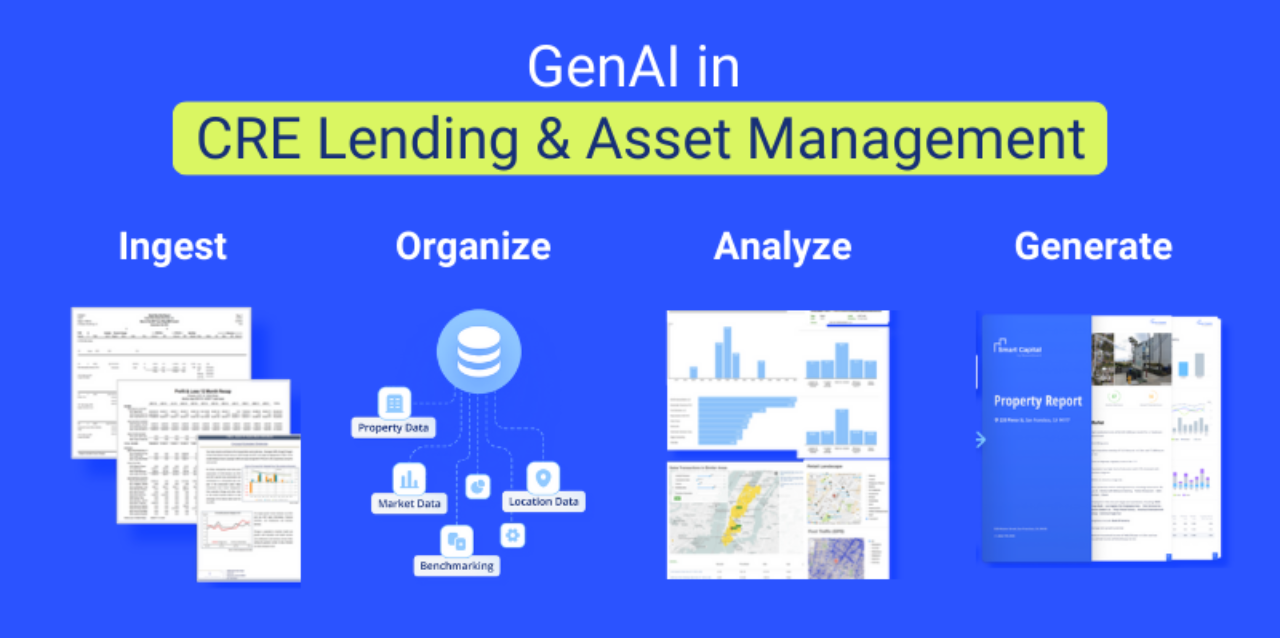
Generative AI can efficiently summarize a wide range of documents, including deal materials, market overviews, and complex legal documentation. As Laura points out, "Prompt engineering is key" to obtaining accurate and relevant summaries. This involves selecting the right prompting technique, crafting detailed prompts, and potentially utilizing AI-generated prompts for optimal results. Personalization can further enhance the quality of summaries, and tools such as Perplexity.ai can be leveraged to achieve this.

Generative AI is a strong research tool. It can quickly check tenant risk and give market insights. It can also find deal risks and summarize local rules. This can significantly accelerate the research process and empower lenders and asset managers to make more informed decisions.
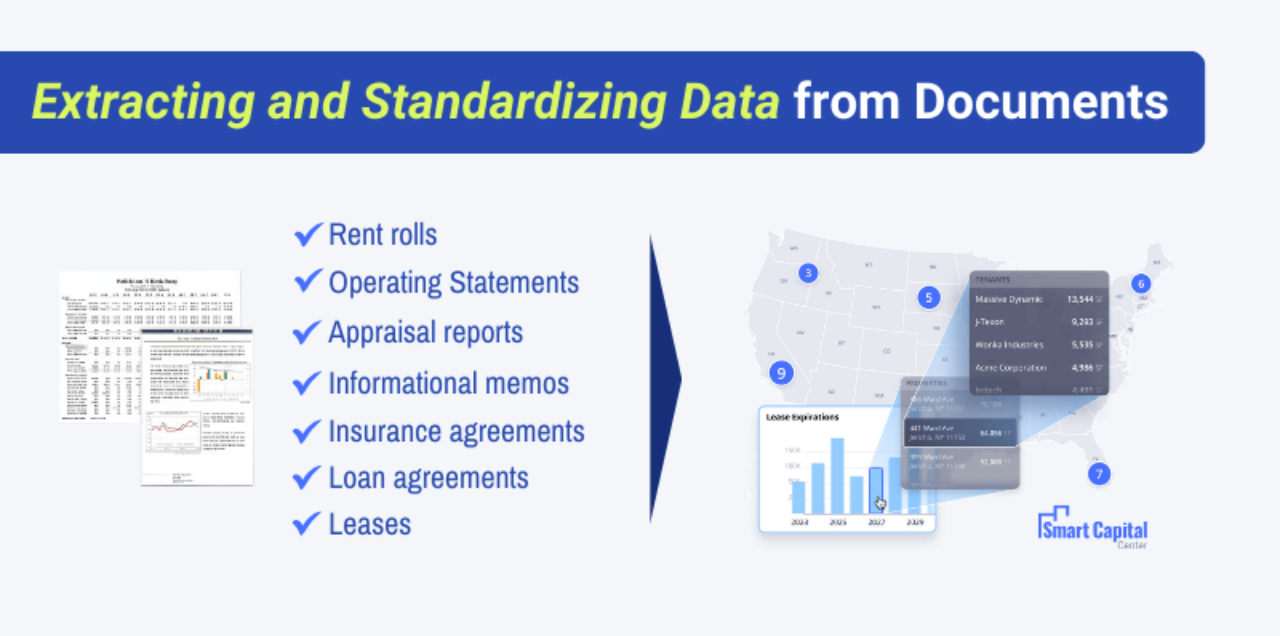
AI-powered tools such as Smart Capital can extract and standardize data from various documents. This streamlines the data collection and analysis process, enabling faster and more accurate underwriting and asset management decisions. The extracted data can then be used for financial analyses, variance analyses, normalizations, and reporting.
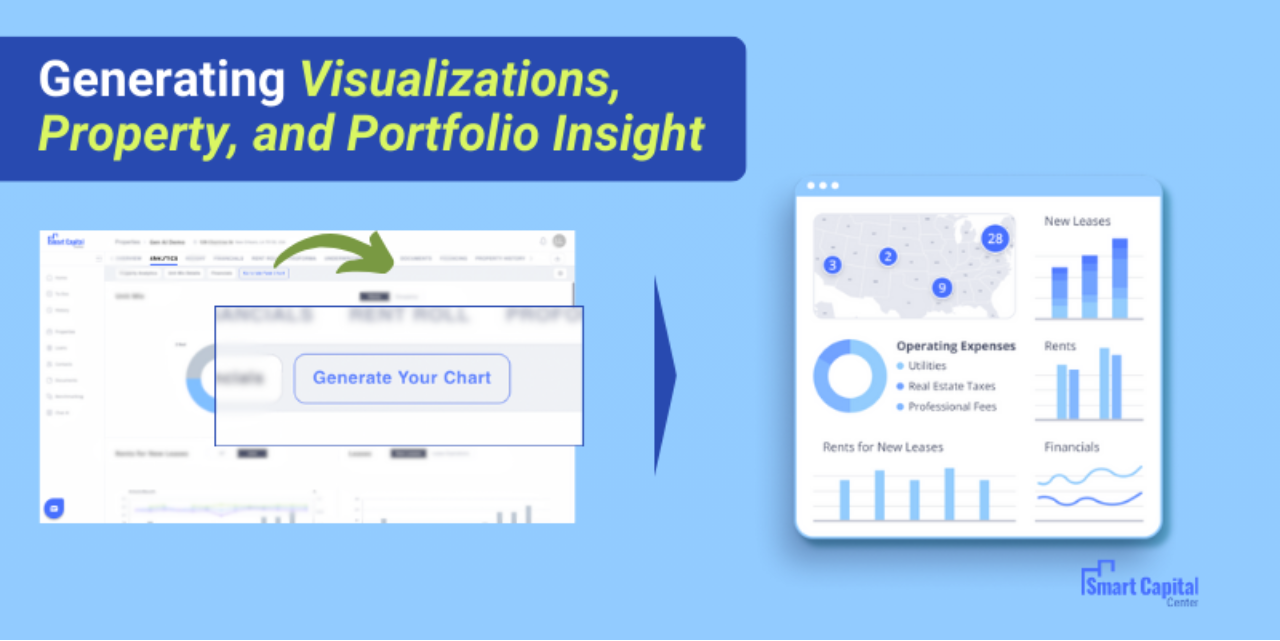
Generative AI can be used to generate interactive charts and visualizations. Such visual representation aids in quickly and effectively assessing financial and operating property and borrower performance, market analysis, and the like.
Users can now create their own charts quickly. This is in addition to the default charts from systems like Smart Capital. There is no need for complex SQL queries or data changes. Instead, users can simply write a description of the chart they want to see, and the system will generate it in real time.
This process significantly improves the efficiency and accuracy of creating comprehensive investment memos.
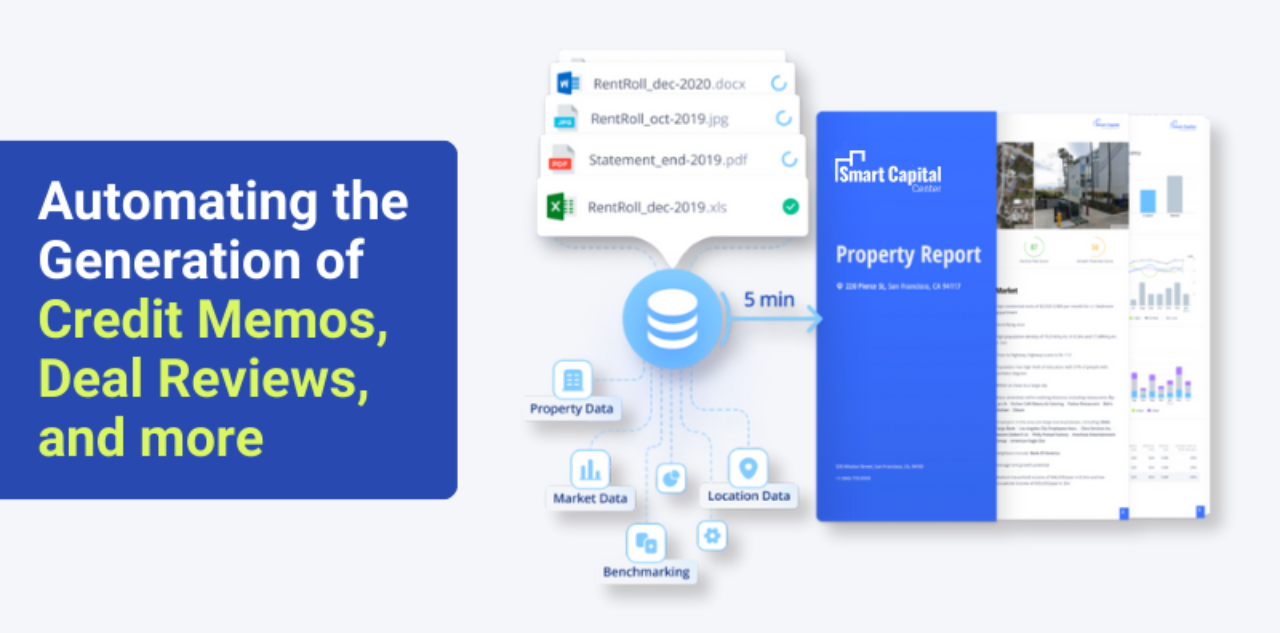
This is transforming the way lenders prepare credit memos by streamlining the traditionally manual and time-consuming process. With Generative AI, lenders can automate the first drafts of credit memos. The AI can create important parts like borrower summaries, financial analyses, and risk assessments. This automation not only saves time but also enhances accuracy by minimizing human errors.

Generative AI can optimize communication by generating better and faster notes and messages. For instance, Smart Capital New GeGenerative AI can optimize communication by generating better and faster notes and messages. For example, the Smart Capital New Generation Borrower Portal can create alerts, reminders, and notifications. These can be for both internal deal teams and outside parties. Additionally, AI can enhance the personalized borrower portal experience, making interactions more efficient and tailored to individual needs. This improved communication helps to maintain transparency and strengthen relationships between lenders, borrowers, and other stakeholders.
One of the most interesting innovations today is the concept of AI Agents. These are autonomous AI programs designed with specific goals. These agents can independently work toward accomplishing objectives assigned to them.
A key example of this innovation is Devin. Devin is the first AI software engineer created by Cognition. It was launched in March 2024. Devin exemplifies the capabilities of advanced AI agents in the following ways:
Beyond software engineering, AI agents such as Devin can act as hundreds of specialized agents in the CRE sector, including underwriters, closers, and asset managers. These agents can autonomously perform tasks such as underwriting loans, managing assets, and closing deals, drastically scaling operations, and allowing smaller companies to compete with larger players on an equal footing.
The emergence of AI agents will mark a new era in automation, significantly transforming workflows in commercial real estate (CRE). These intelligent agents are designed to handle complex tasks autonomously, enhancing efficiency and productivity across various roles in the industry.
Laura Krashakova says, "Imagine having many agents working with your team. These agents could be underwriters, asset managers, and closers. They can help you greatly increase your operations."

This transformation paves the way for a more efficient, productive, and innovative future in CRE lending and asset management.
AI has great potential in commercial real estate (CRE) lending and asset management. However, we must address the risks. This will help ensure responsible and effective use of AI. The primary concerns include:
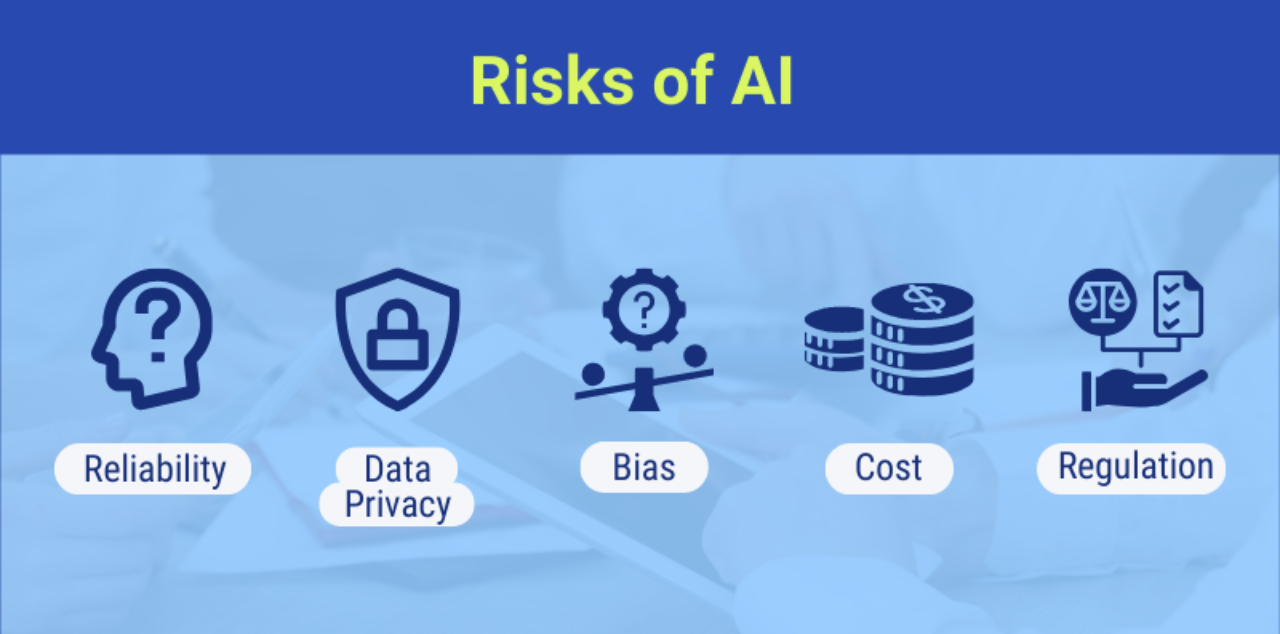
The impact of AI on the future of work is significant. Large language model (LLM) agents show amazing skills in many tasks. These advancements bring several key changes to the workplace:
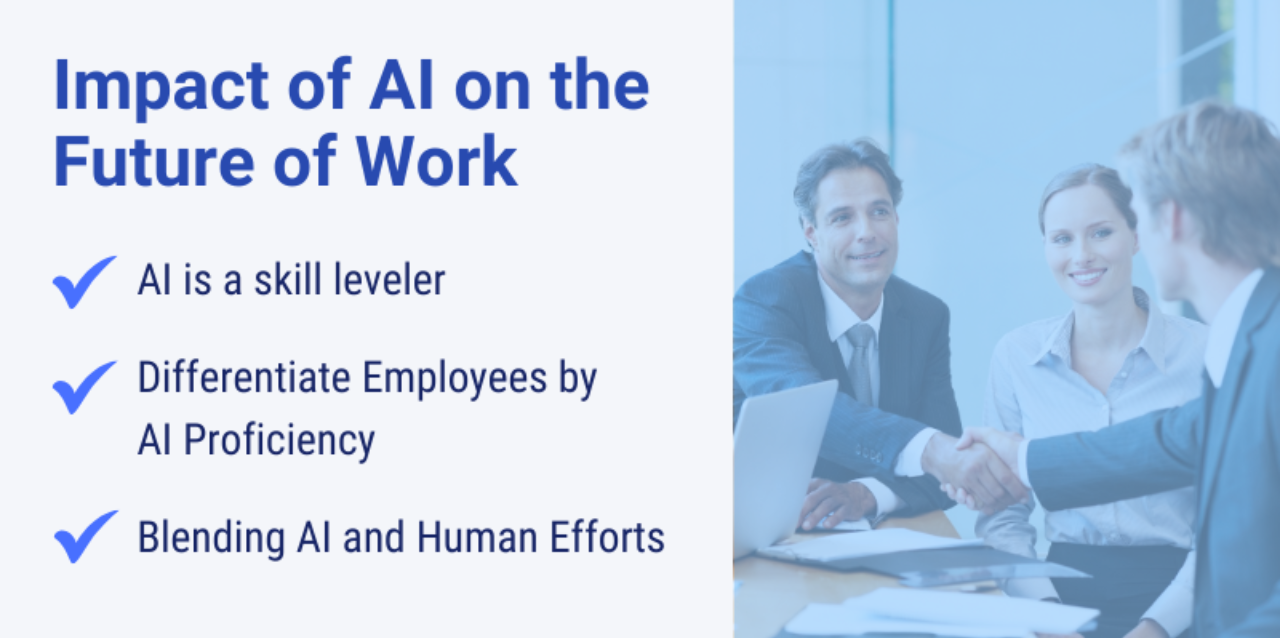
To further explore AI’s evolving role in commercial real estate, check out our earlier discussion on the future role of generative AI in CRE Lending.

AI is not just a tool but a partner that enhances human capabilities. To understand how generative AI can change servicing and asset management, contact us today. We can show you how it can help your organization. Let's discuss how you can leverage AI to drive efficiency, innovation, and success in your servicing and asset management operations. For a more comprehensive analysis of Gen AI in Lending and Servicing, request a copy of our brochure here.